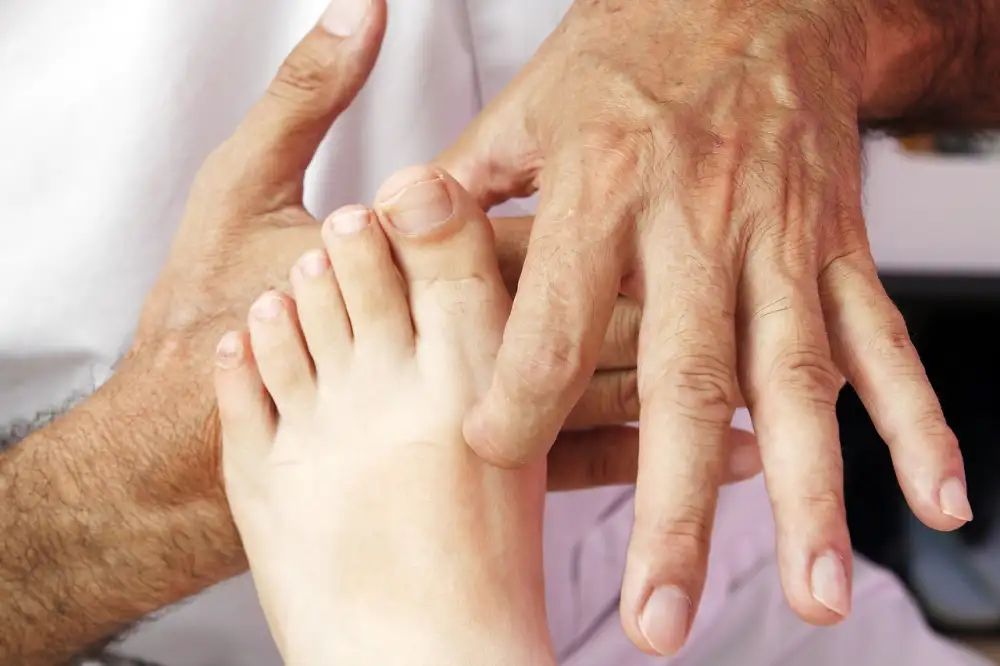Relieve Allergies Naturally with Reflexology: A Holistic Approach to Health

Reflexology is a holistic therapy that involves applying pressure to specific points on the feet, hands, or ears to stimulate the body's natural healing process. It is based on the principle that these points correspond to different organs and systems in the body. When it comes to allergies, reflexology can be a gentle yet effective way to alleviate symptoms and promote overall well-being. By targeting key reflex points associated with the immune system and respiratory system, reflexology aims to restore balance and harmony within the body, helping to relieve allergy-related discomfort.
Understanding Allergies and Their Symptoms
Allergies are the body's immune system reacting to substances that are typically harmless. Common allergens include pollen, dust mites, pet dander, certain foods, and insect stings. Symptoms can vary from mild to severe and may include sneezing, coughing, itching, hives, swelling, and difficulty breathing. Severe allergic reactions can lead to anaphylaxis, a life-threatening emergency that requires immediate medical attention. Identifying triggers and understanding symptoms is crucial in managing allergies effectively.
How Reflexology Works in Treating Allergies
Reflexology works in treating allergies by stimulating specific reflex points on the feet, hands, and ears that correspond to different organs and systems in the body. By applying pressure to these reflex points, reflexologists aim to improve circulation, reduce inflammation, and promote relaxation. This stimulation helps to balance the body's energy flow and enhance its natural healing abilities. In the case of allergies, reflexology can help alleviate symptoms by targeting areas related to the immune system, respiratory system, and digestive system.
Benefits of Using Reflexology for Allergies
Reflexology offers numerous benefits for treating allergies. By stimulating specific pressure points on the feet, hands, and ears, reflexology helps to improve circulation, reduce inflammation, and promote relaxation. This holistic approach can help alleviate allergy symptoms such as congestion, sneezing, itching, and skin rashes. Reflexology also supports the immune system by reducing stress and promoting overall well-being. Additionally, reflexology is a non-invasive and natural treatment option that can be used alongside other allergy management strategies for enhanced relief.
Reflexology Techniques for Allergy Relief
Reflexology techniques for allergy relief focus on specific pressure points on the feet, hands, and ears that correspond to different organs and systems in the body. To alleviate allergy symptoms, practitioners target reflex points associated with the respiratory system, immune system, and lymphatic system. Applying gentle pressure or massage to these areas can help improve circulation, reduce inflammation, and promote overall balance in the body. Techniques such as thumb-walking, rotating movements, and kneading can be effective in providing relief from allergies. It is essential to work with a trained reflexologist to ensure proper technique and maximize benefits.
Precautions and Considerations when Using Reflexology for Allergies
When using reflexology for allergies, it's important to consider a few precautions. Firstly, always consult with a qualified reflexologist or healthcare provider before starting any treatment. They can provide guidance on the appropriate techniques and duration of sessions. Additionally, individuals with certain medical conditions such as diabetes or pregnant women should seek advice from their healthcare provider before undergoing reflexology. It's also crucial to communicate any allergies or sensitivities you may have to ensure the safety of the treatment.
In conclusion, reflexology offers a natural and holistic approach to relieving allergies by stimulating specific pressure points on the feet that correspond to different organs and systems in the body. This ancient practice can help alleviate allergy symptoms, improve overall well-being, and promote relaxation. While reflexology can be a beneficial complementary therapy for managing allergies, it is essential to consult with a qualified reflexologist or healthcare provider before starting any treatment. Embracing reflexology as part of a comprehensive health regimen may provide relief and enhance your quality of life.
Published: 25. 03. 2024
Category: Health



